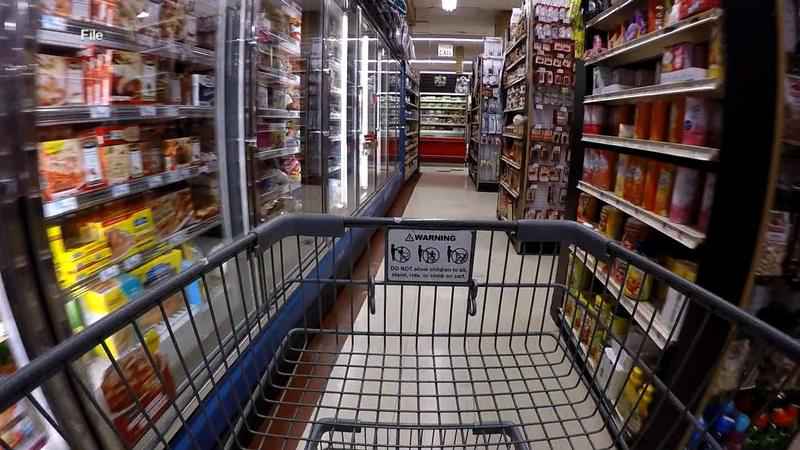Persisting supply chain issues could complicate Thanksgiving grocery shopping
Minnesotans are urged to shop ahead for Thanksgiving dinner ingredients as grocery stores continue to deal with supply chain issues.
"We’re not alone in this battle," said Ted Spreigl, store manager at Tim and Tom’s Speedy Market in St. Paul.
Spreigl said his family-owned business often places orders early, but ever since the pandemic started, it has been difficult to predict if certain items will be available or when they will arrive.
"It’s more of the transportation issues. Sometimes it’s just sitting in the warehouse and they can’t get it to us because there aren’t drivers," Spreigl said.
In a statement, the Food Industry Association said a combination of several supply chain obstacles, from labor and transportation shortages to natural disasters like Hurricane Ida, are driving food price projections.

[KSTP]
"The combination of these challenges will continue to be disruptive and will create an uneven supply chain recovery that may continue through the end of the year," the statement read.
The Minnesota Grocers Association said the impacts are being felt by grocers across our state.
"All of those things continue to pile up in a way we’ve never experienced them before," said MGA President Jamie Pfuhl. "So I think planning ahead is a key component."
Pfuhl recommends Minnesotans take these steps to be prepared for any supply chain issues that may build up heading into the holidays:
- Start shopping early by picking up the non-perishable food items you know you will need.
- Preorder your turkey. Some local grocers are already taking orders.
- Talk to your grocer about the best time to purchase various ingredients and possible alternatives in case they are not available.
- Be flexible with your shopping list.
"If you’re used to a specific brand, maybe think about something else that would work the same. So just have some flexibility and fluidity in that shopping," Pfuhl said.
She said she has heard from grocers across the state who are ordering various holiday items from their suppliers earlier than usual this year and planning ahead for possible shortages.
"Especially those staples, if they can get them in their warehouse or in their stock, then they know they’ve got them. One of the things that’s great in Minnesota is we’ve got a lot of strong, independent grocers and they’re also very resilient and intuitive. They can work with the folks, maybe it’s a local company, to make sure those products get out there," Pfuhl said.
The Consumers Brands Association, which represents major food companies such as General Mills and Coca-Cola, provided this statement to 5 EYEWITNESS NEWS:
The Consumers Brand Association, which represents major food companies such as General Mills and Coca-Cola, said increased costs for commodities like aluminum and corn — which are up 93% and 116%, respectively, over last year — will mean a higher price tag at the grocery store for canned cranberry sauce, corn and turkey come Thanksgiving.
"Our industry has proven agile, navigating pressures and keeping shelves stocked," the Consumers Brand Association said in a statement. "Demand for certain products around the holiday season is predictable to a certain extent, and we can expect that companies will employ a variety of strategies, such as SKU rationalization, to ensure the availability of holiday favorites."
Spreigl said his store placed an order for turkeys in July and has ordered extra supply of other items that may be harder to come by as we head into the holidays.
He also urges Minnesotans to plan ahead.
"I would definitely not wait until Thanksgiving week to start getting your stuff. I’d start now, especially on some of the baking supplies, like flour and pumpkin, because it might not be here come Thanksgiving week," Spreigl said.
Grocers also ask customers to avoid panic buying and hoarding items, saying that contributed to some of the shortages seen early in the pandemic.
Instead, they recommend shoppers slowly purchase what they need over the next month or two.
The National Grocers Association agreed and said in a statement that consumers should be "mindful of their neighbors" when preparing for the holidays and "limit their quantities to only what they need."
"Shopping early for the holidays is a wise strategy, especially under current conditions. There’s plenty of food in the supply chain, but certain items may be harder to get at certain times, which will vary by region," the organization said in a statement. "… Independent community grocers are eager to help shoppers with their holiday needs as well as everyday shopping, so consumers should not hesitate to approach their local grocers with questions about item availability or, if necessary, alternatives."